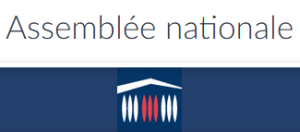Document type: Answer to Question 989 published on the website of the Assemblée nationale
Authors: Christophe Barthès (Rassemblement National - Aude). Answer: French Ministry of Agriculture and Food Sovereignty
Question: Mr. Christophe Barthès draws the attention of the Minister of Agriculture and Food Sovereignty to the difficult situation in which animal shelters such as the Société Carcassonnaise de Protection Animale (SCPA) in the Aude department, which are affiliated to the Confédération Nationale Défense de l'Animal, a public interest organization, find themselves. In addition to problems such as persistently high rates of abandonment, dwindling donations and ever stricter standards, shelters face major funding difficulties. They have substantial expenses (vet fees, payroll, refurbishment work to comply with ever more stringent standards) but very few resources, the vast majority of which come from private donations. These shelters take in several hundred animals every year; they operate within the same constraints as a company, yet they have no income. It is important to distinguish between pounds and shelters. Pounds are largely financed by the municipalities, which pay them an average of 0.90 euro per inhabitant per year (although some fall short in this duty), but shelters are entirely dependent on the generosity of private individuals, a generosity that is dwindling in these times of financial crisis. The finances of shelters are stretched to the limit at a time when our fellow citizens are increasingly attuned to the animal cause, and they are taking in more and more animals that private individuals can no longer afford. The situation for some is critical: - overfull, unable to recruit or heat their premises for financial reasons, they find themselves with hundreds of animals with no help. Why does the government not provide financial help in the form of subsidies or tax breaks, for example by reducing employer contributions for animal shelter staff? It is vital to help these volunteers and all those who work in animal shelters, as they look after animals but will no longer be able to do so if their financial situation continues to deteriorate. He asks the Minister to explain what he intends to do about this.
Answer: Animal protection associations that take in abandoned animals play an essential role, and it is for this reason that they are recognized as being in the public interest or of public utility, enabling them to receive donations and bequests under privileged conditions. The fight against animal abandonment is a priority for the Ministry of Agriculture, and an entire section of the "Agriculture, Food, Forestry" section of the France Relance plan has been dedicated to this issue. 35 million (M€) have been mobilized to fund animal protection associations that take in abandoned animals, so that they can expand or renovate their shelters, in particular to comply with the standards that have been in force since 2014, or conduct, in partnership with municipalities, sterilization campaigns for stray cats and dogs. A further €5.5 million has been earmarked for the care of animals belonging to people on low incomes, the destitute or the homeless, in order to promote veterinary care for these animals. In addition, to optimize the work of animal protection associations, €1 million was allocated to national associations, whom the Ministry has entrusted with the task of training and professionalizing local associations. The Finance Acts for 2023 and 2024 added a further €1m to this financial support for animal protection associations that accommodate abandoned animals, whether these are companion animals or farm animals. In addition, the Finance Act for 2024 allocates €3m to local government to help pay for the sterilization of stray and domestic cats. Last, in the absence of reliable data on abandonment and due to a lack of knowledge of the circumstances that can lead to the abandonment of an animal, the first Observatory for the Protection of Domestic Carnivores (OCAD) was set up in 2021, bringing together on its steering committee all those involved in the pet sector, associations as well as professionals, scientists and representatives of the State and local authorities. OCAD is currently working on a characterisation of the animal populations cared for by all animal protection associations, and the reasons for them to have entered their care. This preliminary survey will enable us to establish a more precise definition of abandonment, and provide an objective estimate of the number of animals concerned. On this basis, the most relevant lines of action can then be determined to reduce the number of abandoned animals. A sum of €0.3 million has been allocated to this work.




